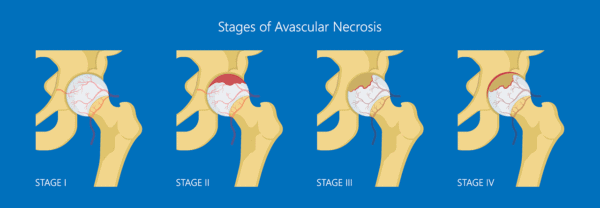Steroids are Awful: More Evidence for Steroid Stem Cell Toxicity
High dose steroids, the kind given out like candy by most physicians and used for everything from a herniated disc to asthma are awful drugs. These powerful anti-inflammatories are what I call a “bull in the china shop” pharmaceutical, as while they’re powerful anti-inflammatories, their side effect profile is just like that bombastic bull. Now a new study adds more data to the long rap sheet of just how awful these drugs really are.
You likely take for granted that many tissues in your body have stem cells that act as the local repairmen. When it comes to your bones, mesenchymal stem cells (MSCs) are there to turn into new bone cells when the need arises. Since bone is alive and always remodeling itself (and not lifeless cement), these MSCs allow it to respond to it’s environment. When the bone is placed under pressure, it has trillions of tiny crystalline sensors that can prompt the MSCs to build more bone in that area. In addition, these MSCs also respond to chemical clues. For example, many women in menopause loose the chemical signalling that allows MSCs to be instructed to maintain bone, so a switch is flipped on the cells that causes them to become fat instead of bone. The same thing can happen with medications, switches on the cells can be activated that instruct them to make less.
You also likely take for granted that your body’s ability to maintain itself is one big math equation that looks like:
Repair>=Wear and Tear
As long as the stem cells that repair your tissues are plentiful and active enough to exceed wear and tear, your body remains young and healthy. Once wear and tear exceed the local stem cell’s ability to repair, things begin falling apart. This is where our new study comes in, as it found that in patients with a severe bone disease, steroid stem cell toxicity was causative as steroids flipped a switch on MSCs so that they didn’t want to turn into bone.

Rumruay/Shutterstock
Avascular necrosis (aka Osteonecrosis) is an awful disease where the bone turns to mush. The name comes from our old understanding that this disease happened when the bone lost it’s blood supply. While that can happen when a surgeon inadvertently places a screw through a critical blood vessel, we now know that AVN happens when the local MSCs aren’t able to keep up with repair. There are many different chemical insults to the cells that can cause them to lose their ability to repair including alcoholism. In addition, steroids have long been known to be a big culprit. Hence it’s not a big surprise that this new study showed that MSCs exposed to steroids had difficulty becoming bone, which reduces bone repair and allows the normal wear and tear to begin damaging the bone until it finally dies and collapses.
The upshot? Avoid steroids wherever possible. This can be tough to do in today’s medical care system as doctors generally sprinkle this stuff around like holy water during Catholic mass. One way to help a bit if you have to use these drugs is to reduce the dose to the lowest possible amouint. For example, for respiratory problems you can use a steroid inhaler that uses micrograms of steroid rather than taking a pill with milligrams (1,000 times as much). Or if you need an epidural for back or neck pain, we have been able to substitute growth factors isolated from the patient’s own blood platelets which work as well or better than steroids. Finally, if you need a steroid shot in the knee or for something like tennis elbow, tell your doctor that you would prefer platelet rich plasma (PRP). If your doctor doesn’t offer steroid alternatives, find another doctor!

NOTE: This blog post provides general information to help the reader better understand regenerative medicine, musculoskeletal health, and related subjects. All content provided in this blog, website, or any linked materials, including text, graphics, images, patient profiles, outcomes, and information, are not intended and should not be considered or used as a substitute for medical advice, diagnosis, or treatment. Please always consult with a professional and certified healthcare provider to discuss if a treatment is right for you.
